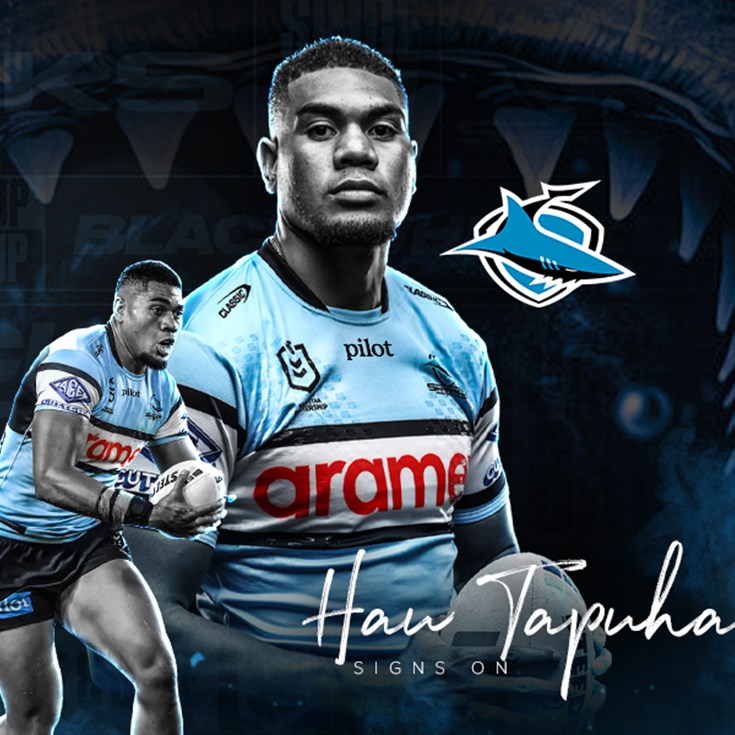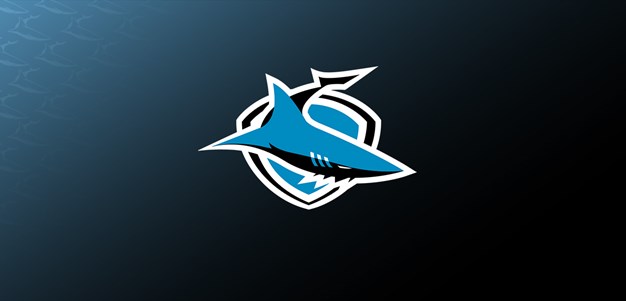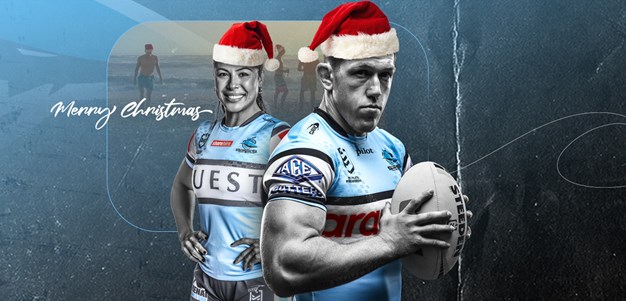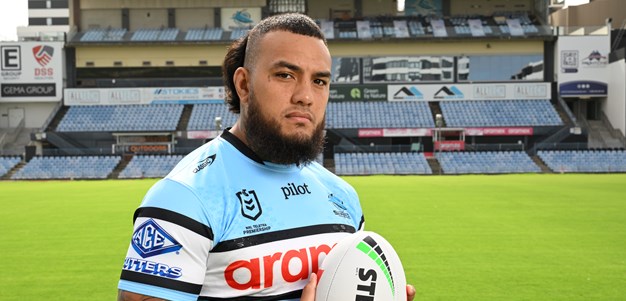

Son of club Immortal Steve, Mat Rogers was destined to be a fan-favourite from the moment he debuted for Cronulla in 1995.
Rogers played 123 games for the Sharks across seven years in the Shire, accumulating 1112 points throughout his time at the club. He sits second in regards to the most points scored for the club, behind only his father in the all-time rankings.
A gritty, fast and skilful winger, Rogers made his Australian debut against the Kiwis in the ANZAC test of 1998 – and unlike the methods today – he received word of his national call up at the same time as most others.
“It wasn’t when they made phone calls. It was on the radio on the Sunday afternoon before the Test,” Rogers said.
“I remember it very well, because I was with mum and dad. There was a lot of talk about me potentially playing, so I was there with anticipation.
“So when got the announcement over the radio, it was pretty exciting.”
Having dreamed of pulling on the Green and Gold jersey since he was a child, Rogers’ Kangaroos debut didn’t quite go to plan.
The Australians went down 22-16, despite boasting names like Johns, Harragon, Toovey and Lockyer; and Rogers felt a personal pain to compound the ache of the loss.
“We had a bad night across the board. I broke my hand in the game. It was just one of those nights where we couldn’t seem to get anything going,” said Rogers.
“Playing with guys like Terry Hill, Glen Lazarus and Laurie Daly – it was pretty nerve wracking.
“Fortunately I think I improved as a footballer as the years went on.”
While current Sharks skipper Paul Gallen was forced to withdraw from this week’s Trans-Tasman Test, Rogers knows all too well the feeling of missing an international game through injury.
The goal-kicking winger incurred an injury at the back-end of the 1998 season, all-but ruling him out of contention for the Test matches at the end of the year.
“It’s pretty disheartening, because you’re missing out on playing with the best players in the world,” said Rogers.
“Origin is great, but you’re playing both with and against the best players in the world – not just with them like in a Test side.
“So when you miss out on that, it’s pretty disappointing.”
Returning to club-land and playing consistent, tough footy throughout the 1999 and 2000 seasons, Rogers was selected in the Kangaroos side to tour Great Britain for the 2000 World Cup.
The Australians went through the tournament undefeated, prevailing 40-12 over the Kiwis in the Cup final. Rogers said it was incredible to be crowned a world champion.
“It’s a pretty amazing feeling. To represent your country, but then to beat all-comers, that’s pretty cool,” he said.
“It was a close match, a tough game. We definitely enjoyed that victory. It was a really good group of guys who were on that tour.
“When you finish your career and you look back on those times, there are some very fond memories.”
A memory perhaps not so fond; Rogers boasted free-flowing golden locks throughout much of the 2000 World Cup.
Under the watchful eye of fellow Kangaroo Brad Fittler, Rogers took to the peroxide and dyed his hair – all in the name of “a bit of fun”.
“There was a bit of a thing going on there on that tour – you had to do one of a few things. Dye your hair, shave your head or grow a beard, and I couldn’t grow facial hair to save myself,” he said.
“It was just one of those things, a bit of fun.
“I certainly dyed it back to its normal colour as soon as I got home.”
The World Cup final would be the last Test match Rogers would play in Rugby League, but not the last time he would wear Australia’s national colours.
The Union convert amassed 45 Test caps for the Wallabies before returning to the NRL in 2007 with the Gold Coast Titans.
Retiring from the game at the end of 2011, Rogers still resides on the Gold Coast but will forever have strong ties with the Cronulla club.
Rogers praised the work of Group CEO Lyall Gorman, and the influence he has had in the club re-engaging with the community, members, fans and ex-players.
“I think it’s great. One thing that I really love about the Sharks – and that they’ve really turned the corner on – is actually trying to cultivate the culture from within,” Rogers said.
“If that culture doesn’t exist, it creates a bad vibe around the club. In Cronulla, I love the fact that they’re incorporating the ex-player back into a part of something pretty special.”






